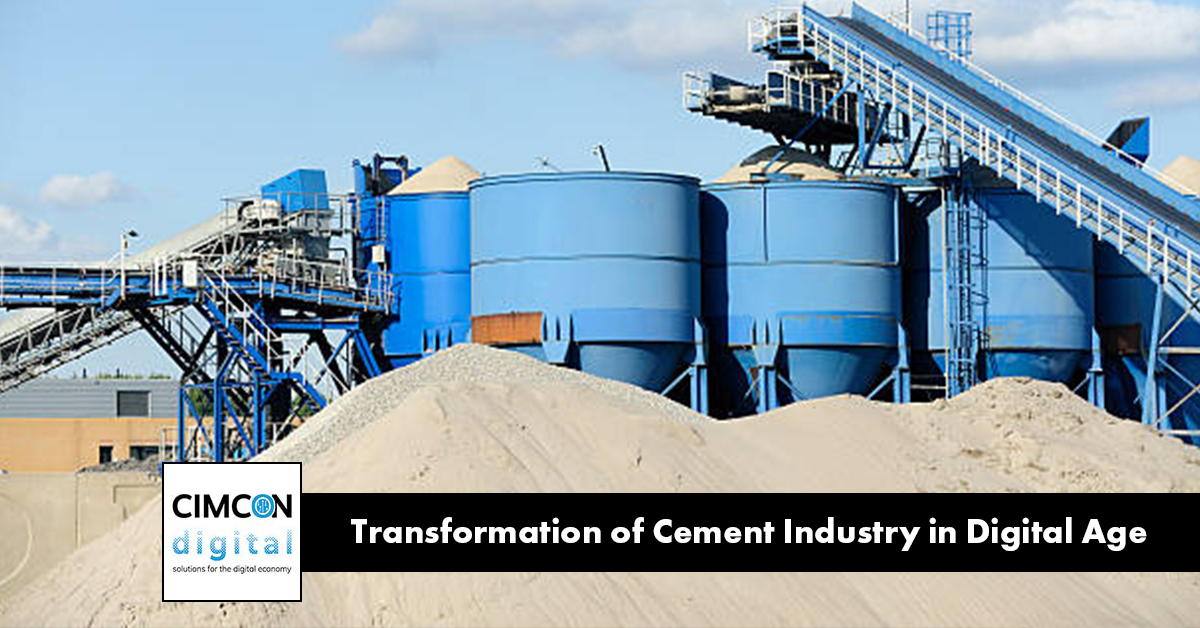According to Deloitte, the strategic importance of smart factories is undeniable, as early adopters have reported operating more efficiently and driving more to the bottom line. In the United States alone, 86% of manufacturers believe that smart factories will be the main driver of competition by 2025. 83% believe that smart factories will transform the way products are made.
The cement plant is one of the most important industries in the smart factory perspective and it is believed that the cement plant of the future will operate in a different way than today’s plants. The cement plant of the future will achieve lower operating costs and higher asset value through higher energy efficiency, yield, and throughput and more targeted effective maintenance will also lengthen the lifetime of the equipment. But before we dig into the future of the cement industry, what are some of the challenges that the cement industry usually faces?
Challenges in Cement Industry
Raw price increase
Several macroeconomic conditions going on all over the world like the Ukraine-Russia War and the tension between USA and China has led to an increase in raw material prices like coal, gas, and electricity. With raw material prices soaring up and freight charges increasing, there is looming pressure on labour costs which will lower the margins for cement producers in the long run. So, cement producers need to be more effective in handling labour costs and reduce manual labour costs in order to improve efficiency.
Low consumption and resilient supply chains
Due to the pandemic, the housing industry has taken a hit and there has been a decline in the production of cement during the pandemic. But with people now thinking beyond the pandemic, the production of cement will go up in considerable future. With supply chain resiliency, particularly around the spending area of transportation & logistics, it is essential for cement industries to oversee the suppliers’ supplier as some markets are seeing increasingly panicky buying patterns. So, it is essential that the cement industries work in full flow and there is lesser downtime to meet the needs of the suppliers across the globe.
Selective investment in smart technology and AI
Many cement industries have initiated digital transformation to achieve many of the goals post-pandemic. But many of the digital transformation programs are not delivering the value they have promised. The cement industries need to look for the way ahead where proper digital transformation programs are implemented which can not only increase the efficiency of the plants but also help to reduce the downtimes which will eventually lead to better-operating margins for the cement industries.
The way ahead for the cement industry
Today most cement industries operate in a traditional, nonagile manner with manual or outdated technology infrastructure and they also struggle to acquire and retain skilled workers in important roles. While the cement industry has seen major advancements in IT infrastructure and operational technology over the past two decades, the return has been below expectations. So, it is essential for the cement industry to sit together and find out a way how to improve the existing infrastructure which can help to manage the assets effectively and also help to reduce the downtimes. Sensors and predictive maintenance are the way forward for the cement industry. Sensors like vibration sensors can help to determine the malfunction in assets like bearing failure and plant managers can take action on the assets beforehand so that the assets are effectively managed. Predictive maintenance is another important factor for the cement industry where the plant managers can predict the failures in advance before they happen which can lead to a reduction in downtime.
In short, there is no single approach to success in the cement industry and each plant should choose its own path depending on context, goals, existing in-house capabilities, and so forth. But the future of Digital Transformation definitely depends on how the plants are handling the assets in real-time and improving machine health. Also, with skilled labours reducing with time, it is essential for cement plants to take effective steps to automate the plants with sensors and IoT devices so that manual work is reduced and plant managers can focus on more important tasks.
CIMCON Digital provides predictive and prescriptive maintenance solutions, ensuring you know when and how to eliminate downtime and keep business running as usual.


